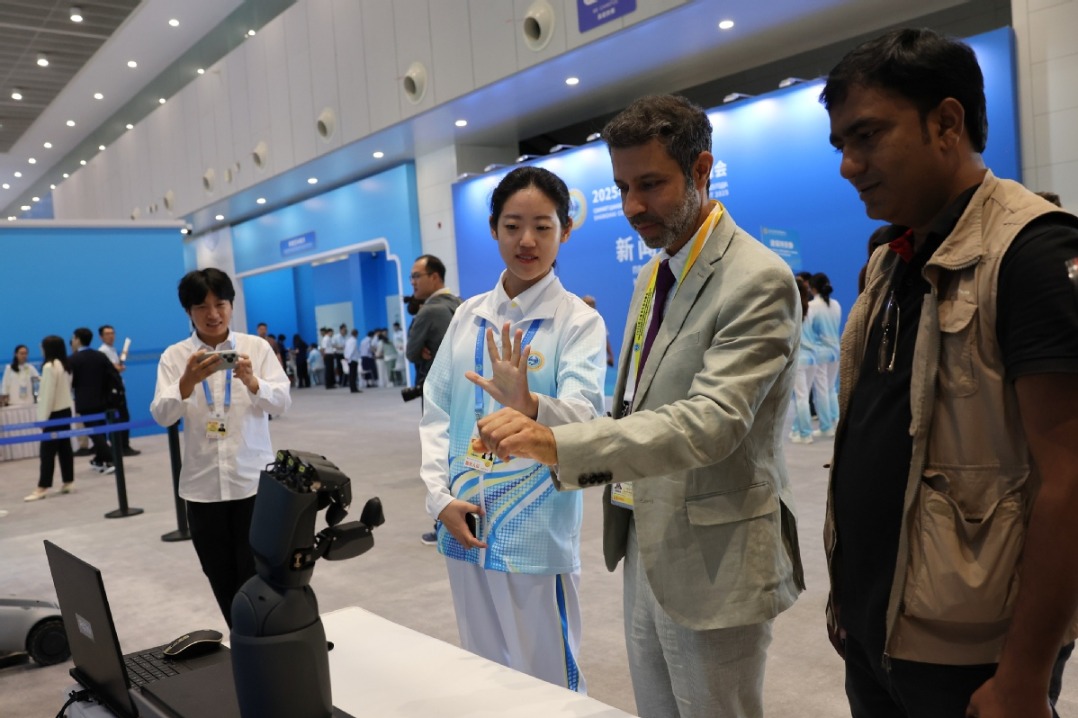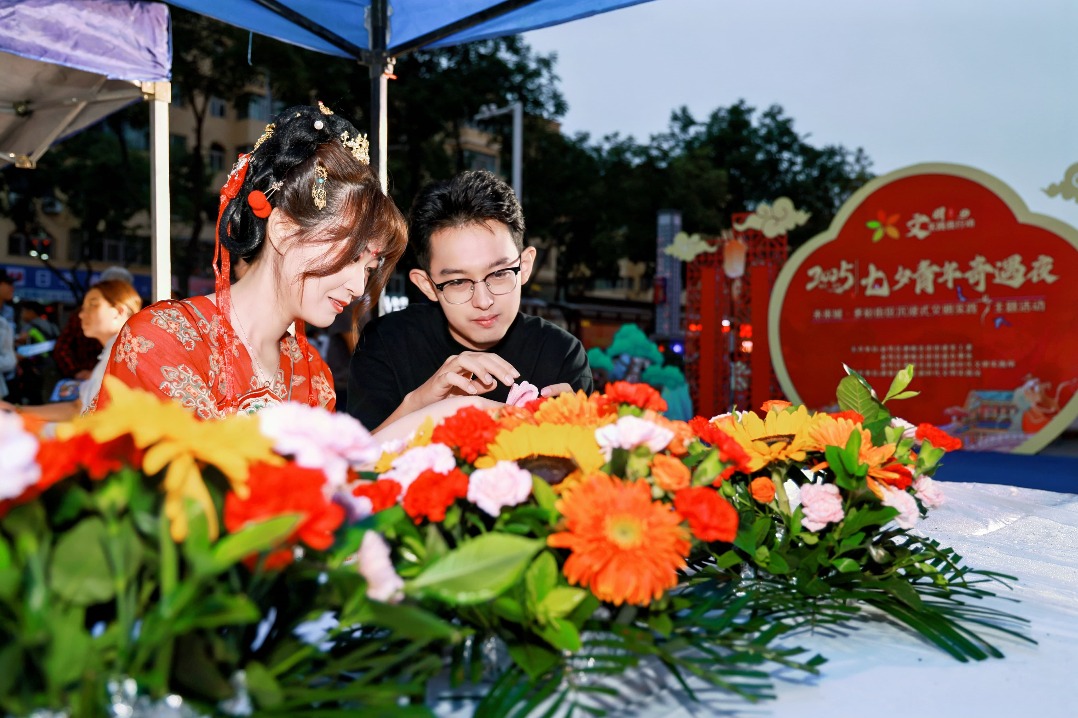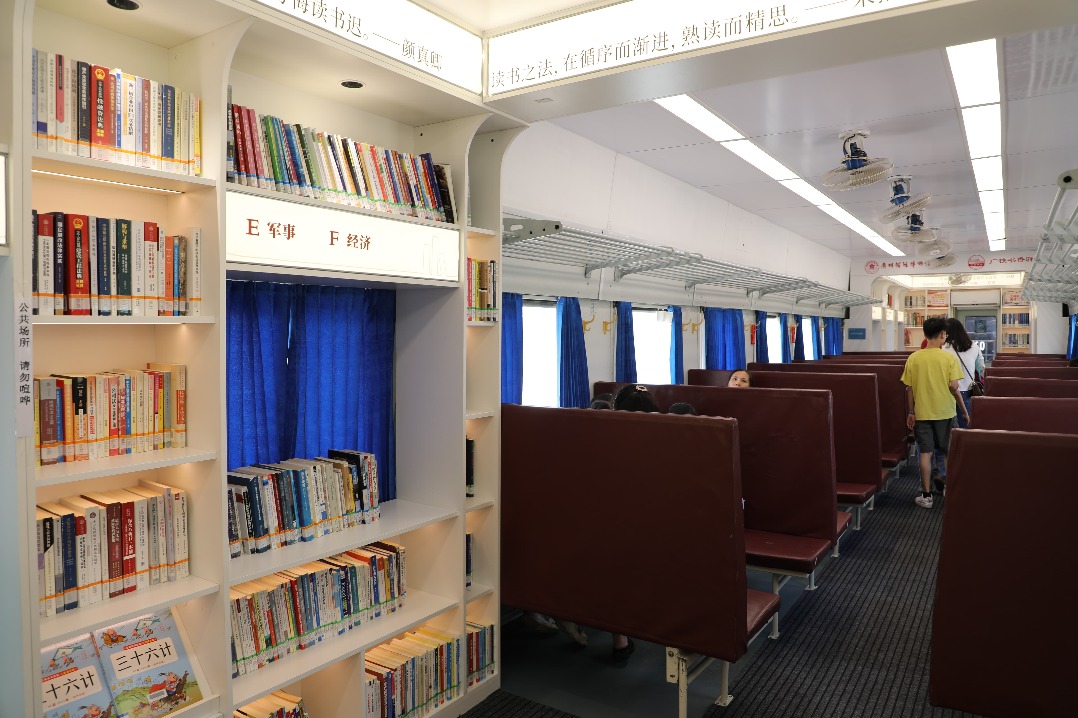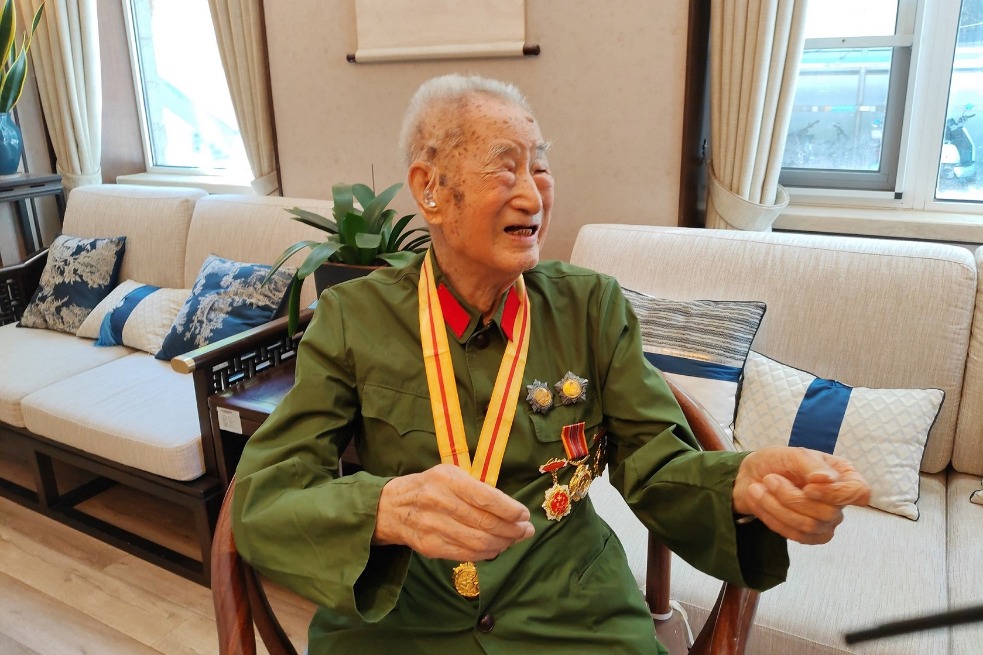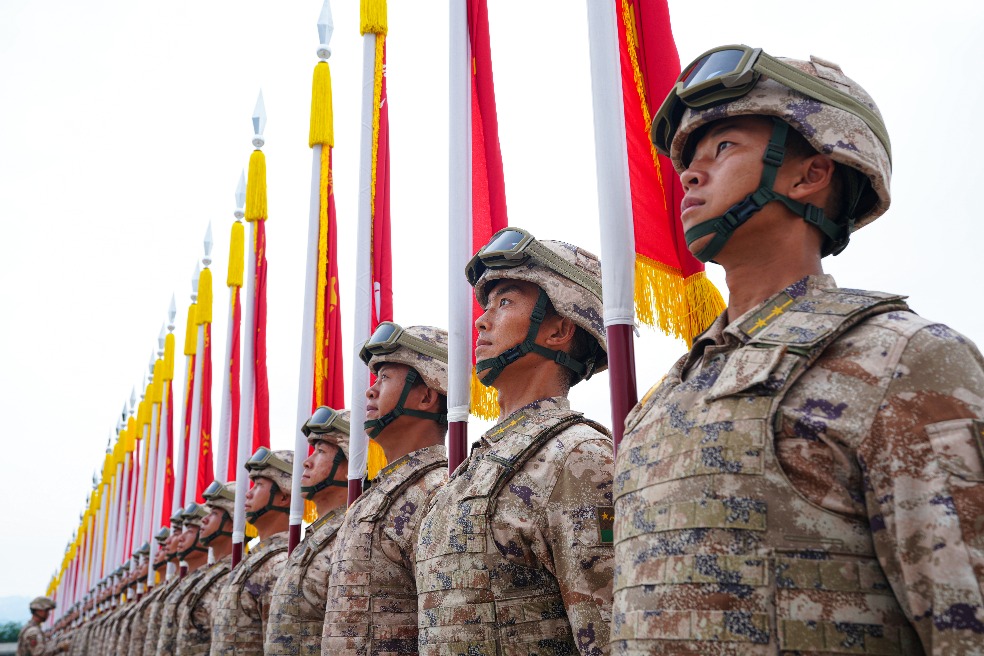Ambassador of the Republic of Trinidad and Tobago to China: 'After coming to Beijing, I've learned how to shop online very soon

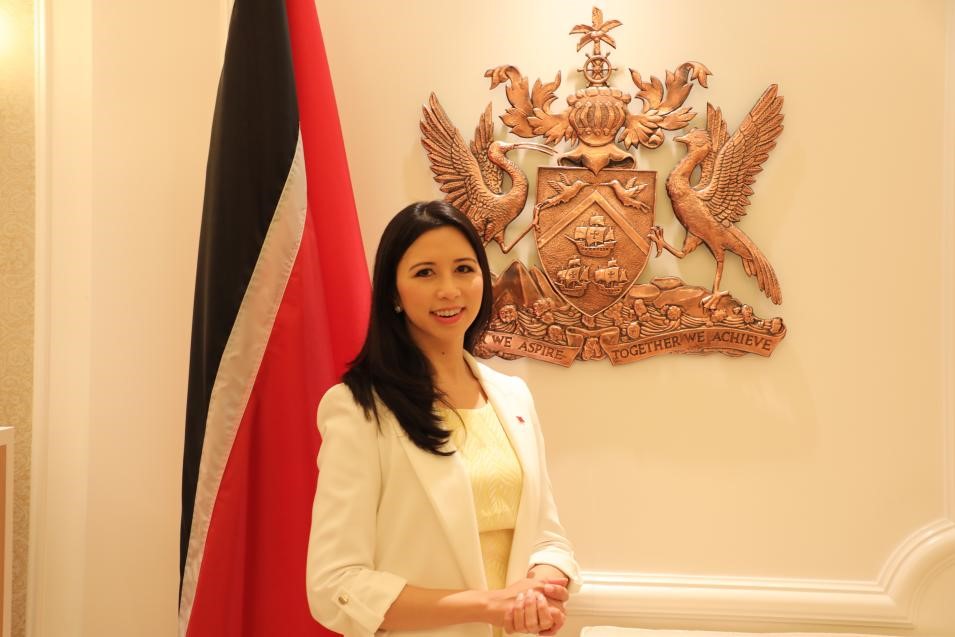
Located at the southern end of the Caribbean Sea, Trinidad and Tobago is a country with abundant resources, picturesque scenery and great cultural diversity. The country's unique charming steel pan music and carnival have gained popularity around the world. In November 2021, Analisa Low assumed her post as the ambassador of Trinidad and Tobago to China. Low said that most of our two peoples know little about the deep exchanges between our two countries. As an ethnic Chinese, she expects to work for enhancing bilateral exchanges during her tenure.
"In Trinidad and Tobago, Cha Shaobao is very popular"
Trinidad and Tobago and China enjoy time-honored friendship, which can be represented by the family stories of Analisa Low, the ambassador. Low introduced that the two countries had shared a long and meaningful history of people-to-people and cultural exchanges before their diplomatic relations were officially established in 1974. In 1806, Chinese emigrants arrived in Trinidad and Tobago for the first time, which marked the Chinese people's first organized settlement in the Western Hemisphere. Low's grandparents moved from Zhongshan, Guangdong province, China to Trinidad and Tobago in the late 1940s. "After coming to Trinidad and Tobago, most Chinese emigrants started businesses for a living while trying to learn English to integrate themselves with the locals." From shopkeepers, restaurant owners, small vendors to people working on commodity sales, imports and exports as well as agriculture, Chinese people of all walks of life in the country have been an integral part of local communities.

Although far away from their hometown, the Chinese community in Trinidad and Tobago has strived to pass on the Chinese cultural values and traditional customs to their descendants. According to the ambassador, Chinese culture has been deeply embedded in the society and culture of Trinidad and Tobago, which can be seen from the busy Chinatown in its capital, Port of Spain where the streets are lined with various shops started by the Chinese people, with the flavor of Chinese food lingering in the air. "In Trinidad and Tobago, Cha Shaobao is very popular and it's called 'pow' by locals and is as well-received as wonton. Also, local Chinese people often gather together to celebrate traditional Chinese festivals such as the Spring Festival and the Dragon Boat Festival," Low said.
These years have seen deeper political mutual trust and continuous pragmatic cooperation in many areas between China and Trinidad and Tobago. Low has witnessed many important moments of the bilateral relations: In June 2013, President Xi Jinping paid a state visit to Trinidad and Tobago, which was the first stop during his visit to the Americas since President Xi took office. In May 2018, Prime Minister Keith Rowley of Trinidad and Tobago paid an official visit to China. During the visit, Trinidad and Tobago became the first English-speaking Caribbean country to join the Belt and Road Initiative. "On the basis of our solid bilateral relationship, I will continue to work on enhancing the ties and friendship between our two peoples," said Low.

"China's new development philosophy deserves much praise"
Low had visited China for several times before she assumed the duty as the ambassador of Trinidad and Tobago to China. Among others, the development of infrastructure and images of cities impressed her a lot. "I have gone to Guangdong and Zhejiang (provinces in China) for many times and witnessed the rapid development of many cities in China. When I went to some cities again, I couldn't even remember what they were like a year ago." In Low's view, many cities in China are interconnected economic hubs where modern airports and hotels are equipped with the most advanced facilities. "It seems that wide roads and modern public transport systems have been built overnight."
Low said that great changes have also taken place in the Chinese people's way of life. "What surprises me most is that e-commerce has gained popularity in such a short period of time in China." Due to the fast development of the mobile Internet, such apps on smartphones as WeChat and Taobao have become people's necessities, making their work and life more convenient and efficient. Low remembered that on the streets of Shanghai and Guangdong 20 years ago, people had to hail a taxi by waving hands and almost all vendors accepted cash only. "But now, people can book a taxi or buy high-speed railway and airline tickets through smartphone apps. And customers can pay easily by scanning the QR code of sellers when shopping." Low said she herself also "does as the Chinese do," and "after coming to Beijing, I've learned how to shop online very soon."
The ambassador said she has the honor to have a front-row seat for a closer look at China's innovative, green and digital development. From her point of view, "China's new development philosophy deserves much praise and chimes in with our national vision of strengthening the building of its capability of innovative, diverse and sustainable development."

"Cooperation with China's e-commerce platforms is under planning"
Despite the geographic distance between the two countries, China and Trinidad and Tobago enjoy increasingly closer cooperation and exchanges. According to Low, over the years, many products from Trinidad and Tobago have had their presence in China: asphalt produced in Trinidad and Tobago has helped build many streets, bridges and airport runways of many countries around the world, including Beijing's ring-road streets, runways of Beijing Capital International Airport and Beijing Daxing International Airport, as well as the Hong Kong-Zhuhai-Macao Bridge; quality Rum and other products from Trinidad and Tobago also appear on China's e-commerce platforms, helping increase Chinese consumers' options.
As Trinidad and Tobago boasts abundant energy resources and is one of the world's largest exporters of ammonia, methanol and liquefied natural gas (LNG), there is great potential for the two countries to conduct cooperation in the energy sector, she noted. A crucial manufacturing and industrial base in the Caribbean region, Trinidad and Tobago also produces world-class Rum, chocolate, spice and chilli sauce. In last year's CIIE, many products from Trinidad and Tobago have attracted Chinese consumers' attention. "We are expecting to attend the fifth CIIE this year to exhibit our special goods," Low said. "Cooperation with Chinese e-commerce platforms is under planning to offer quality products to Chinese consumers. Manufacturers in Trinidad and Tobago are focusing on improving their export capability and are ready to leverage the potential of China's enormous market and its diversified demands."
A highlight of the bilateral cooperation between China and Trinidad and Tobago over the years, the Phoenix Park Industrial Estate in the central and western part of the Trinidad Island has been under construction since March 2020. Trinidad and Tobago, among other Caribbean countries, took the lead in joining the Belt and Road Initiative. The Phoenix Park Industrial Estate is of great significance of demonstration as it is the first project to be put under implementation in the Caribbean region. "The Phoenix Park Industrial Estate, with full coverage of 5G mobile network, acts as a major driver of boosting the diverse development of the country's economy. The project has promoted the development of non-energy sectors such as high-value manufacturing, light industry, emerging industries including logistics and warehousing, as well as information and communications technology," said Low. "The Phoenix Park Industrial Estate has helped to promote the diversified development of our national economy, and it means a lot to Trinidad and Tobago."
- Belgian cyclist completes epic journey to Shanghai
- China issues alert on overseas study in Philippines
- Liaoning Port Group launches 'durian express' shipping service
- Well-known wild Siberian tiger spotted, thriving in NE China
- How Xi promotes sustainable development cooperation with SCO partners
- How Xi pushes for building common home of peace for SCO
















